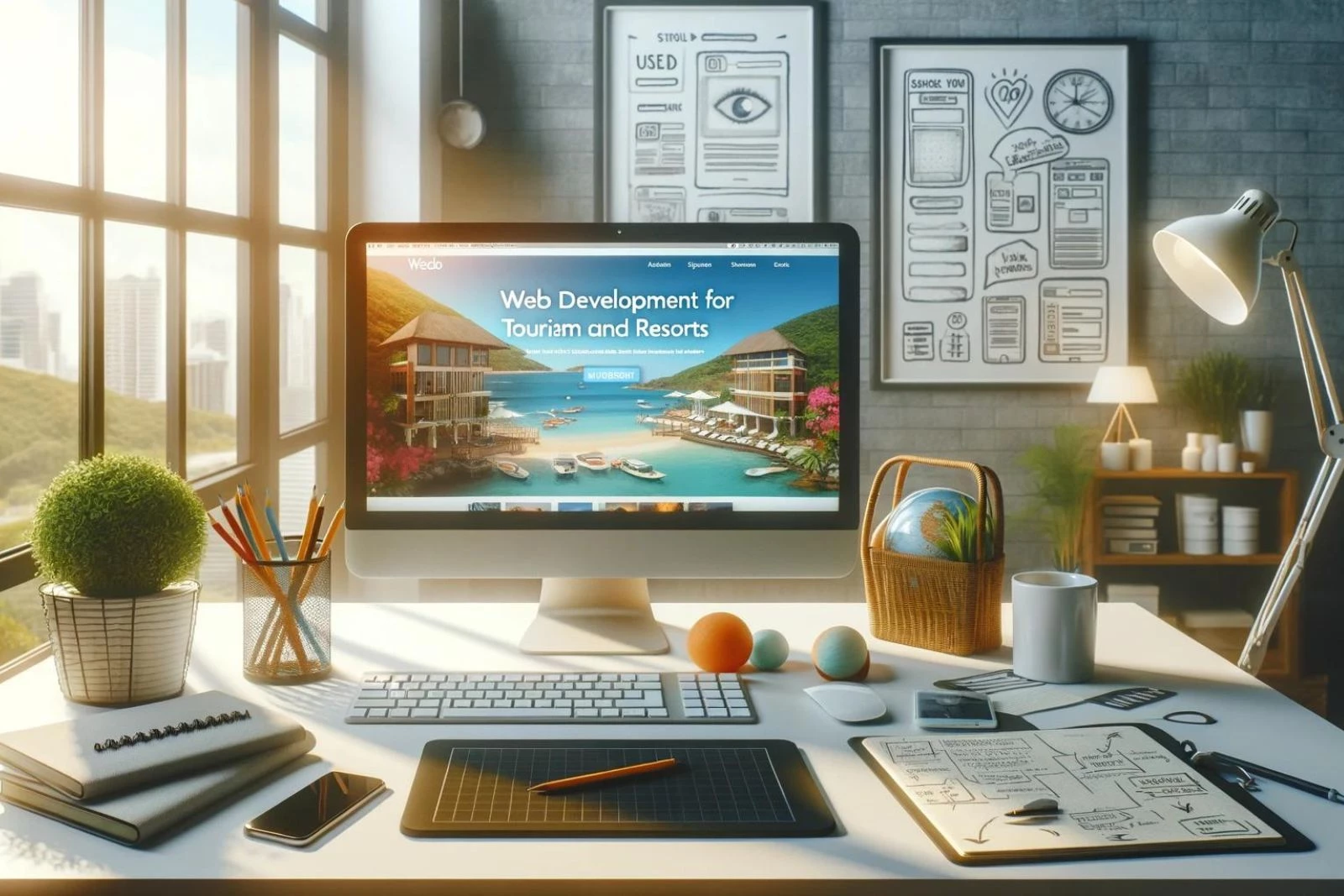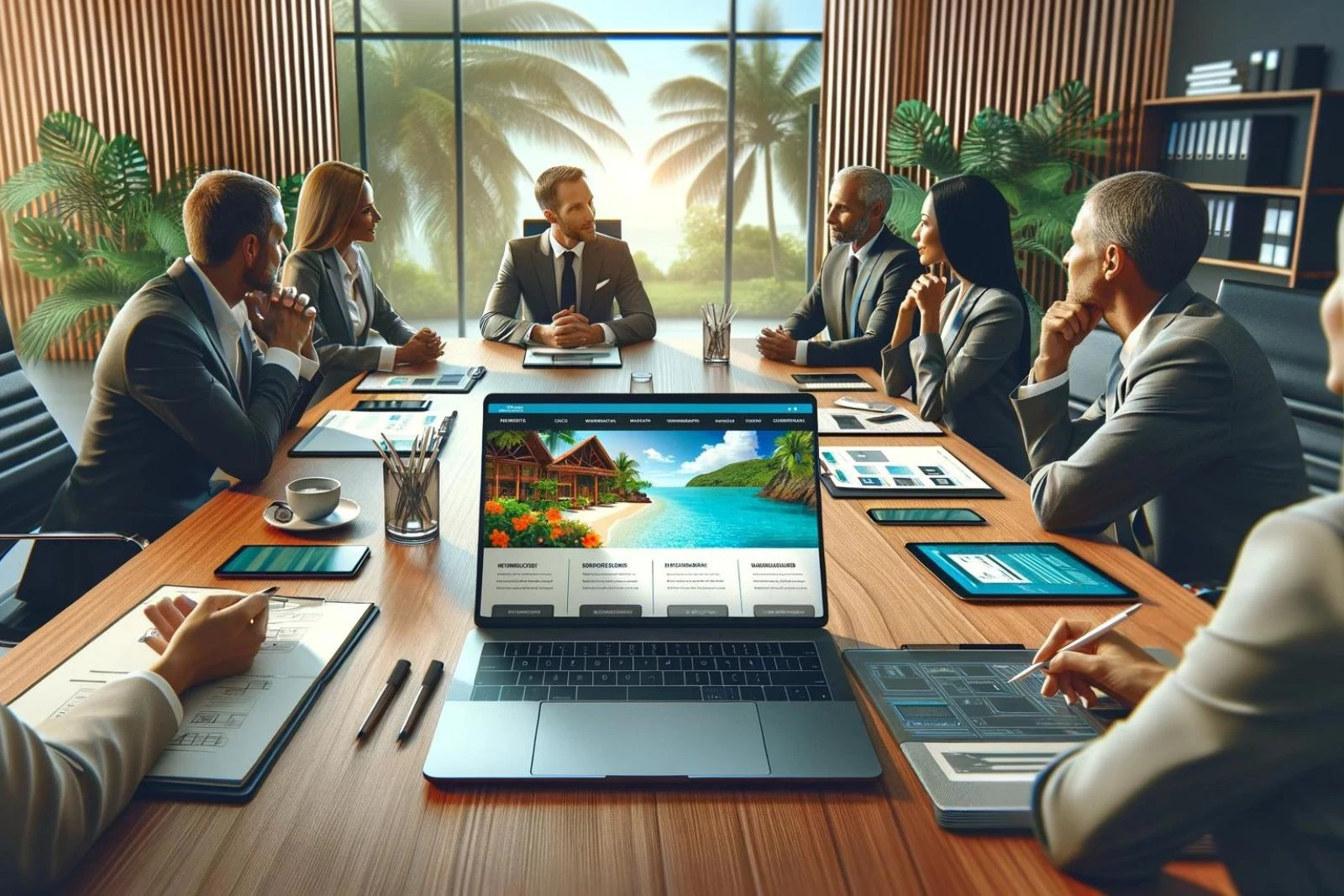
Explore cutting-edge web development strategies for tourism and resorts to enhance online visibility, engage visitors, and boost bookings.
In the ever-evolving realm of tourism and resorts, the digital frontier stands as both a challenge and an opportunity. As the world becomes increasingly interconnected, the importance of a strong online presence has never been more critical. This blog delves into the essential elements of web development for tourism and resorts, highlighting strategies to enhance online visibility, engage potential visitors, and ultimately convert clicks into bookings.
The journey of a tourist, from dreaming about a getaway to booking their stay, is increasingly happening online. A well-crafted website serves as the cornerstone of a resort or tourism business's digital marketing strategy. It's not just about showcasing beautiful images of destinations;it's about creating an immersive experience that begins the moment a potential guest lands on your page.
A website for tourism and resorts should be more than a brochure;it should be an immersive experience. Incorporating interactive elements like virtual tours, high-quality video content, and user-generated reviews can transport visitors from their screen to the sandy beaches, lush landscapes, or luxurious accommodations you offer. This immersive experience is pivotal in converting interest into bookings.
With the majority of travel-related searches starting on a smartphone, having a responsive design is non-negotiable. A website that adjusts seamlessly across devices ensures that no matter where or how a potential guest discovers your site, they receive the same quality experience. This adaptability not only improves user satisfaction but also bolsters your SEO rankings, making your site more likely to appear in search results.
The end goal of your website is to secure bookings, making a streamlined, secure, and straightforward booking process crucial. Integrating a reliable, easy-to-use booking system within your website reduces friction in the reservation process, significantly increasing conversion rates. Moreover, clear calls-to-action (CTAs) should guide users through their booking journey, minimizing any confusion and encouraging decisive action.

In the competitive landscape of tourism and resorts, standing out in search engine results is paramount. SEO strategies tailored to the tourism industry can enhance your website's visibility, attracting more visitors.
Understanding the specific keywords and phrases potential visitors use to find destinations like yours is the foundation of effective SEO. However, it's not just about targeting the most popular terms;it's about finding the niche, specific keywords that align with your unique offerings. This detailed approach ensures you attract visitors who are looking for exactly what you have to offer.
For many resorts and tourism operators, local SEO is invaluable. Optimizing your website for local search terms and ensuring your business is accurately listed on Google Maps and other directories can capture the attention of travelers already in your area or planning to visit.
Content is the heart and soul of your website. Engaging, original content not only improves your SEO but also connects with potential guests on a personal level.
Maintaining a blog offers a window into the experiences your destination offers. From highlighting local attractions and events to offering travel tips and insights, a blog can significantly enrich your website's content, making it more attractive to search engines and potential visitors alike.
Incorporating social media feeds and sharing options into your website can amplify your reach, encouraging visitors to share their experiences and interact with your content. This not only enhances user engagement but also extends your brand's visibility across various platforms.
Web analytics provide invaluable insights into how visitors interact with your website, allowing you to tailor your content, design, and marketing strategies more effectively.
Tools like Google Analytics offer a deep dive into your website's performance, from which pages attract the most attention to where your booking funnel may be losing prospects. These insights are crucial for continuous improvement and ensuring your website remains aligned with your target audience's needs and preferences.

As technology advances, so too do the possibilities for web development in the tourism and resorts sector. From augmented reality (AR) experiences that give potential guests a taste of what awaits them to AI-driven personalization that tailors your website to the individual's preferences, the future is bright.
Staying abreast of these technological advancements and incorporating them into your web development strategy can set your resort or tourism business apart from the competition. The key is to balance innovation with usability, ensuring that your website remains accessible and engaging for all users.
In the digital age, the success of tourism and resorts increasingly hinges on a robust online presence. Through immersive web design, strategic SEO, engaging content, and the smart use of analytics, businesses in this sector can not only attract more visitors to their websites but also convert them into guests. As we look to the future, the potential for web development in tourism and resorts is limitless, with emerging technologies offering new ways to enchant, engage, and convert potential guests. The journey towards digital excellence is ongoing, and for those willing to embrace the journey, the rewards are vast and varied.
Focus on simple navigation, clear CTAs, and immersive content. Utilize high-quality images and videos, and ensure your site is mobile-responsive.
Conduct keyword research tailored to your niche, optimize meta tags and content, use local SEO strategies, and ensure your website is fast and mobile-friendly.
Share unique stories about your location, highlight guest experiences, and use a mix of text, photos, and videos to showcase your amenities and local attractions.
Use responsive design, optimize image sizes, streamline navigation, and test your site on various devices to ensure a smooth mobile user experience.
Use high-resolution images, engaging videos, virtual tours, and a cohesive color scheme that reflects the vibe of your destination or resort.



